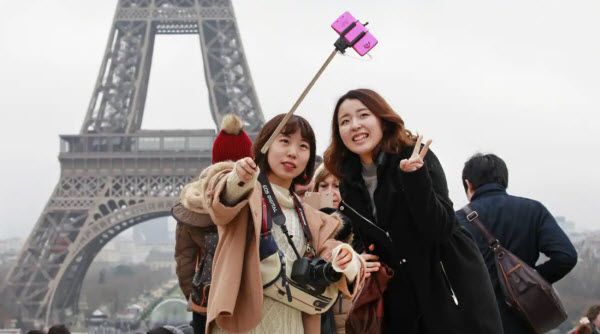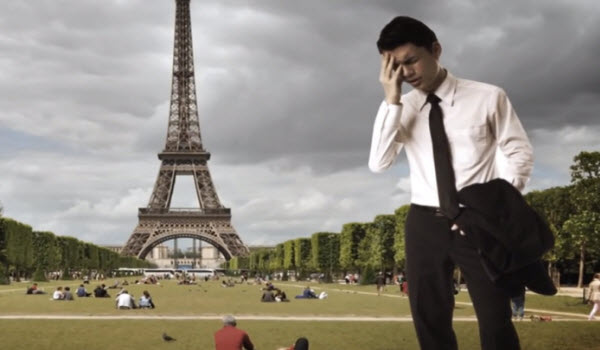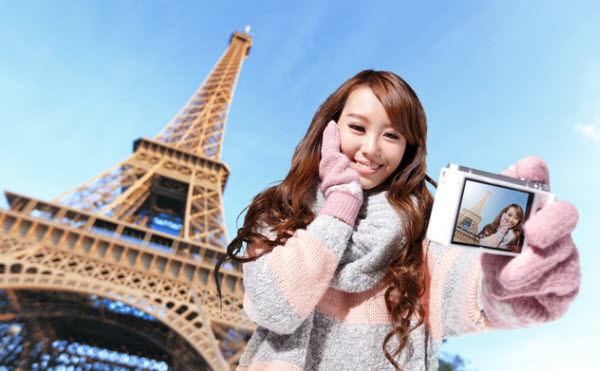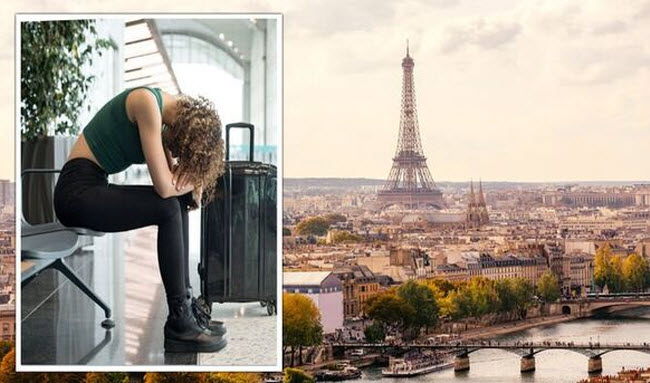Paris, the City of Lights, known for its beauty, fashion, and iconic landmarks such as the Eiffel Tower, the Arc de Triomphe, Notre-Dame Cathedral, and the Louvre Museum—one of the most visited museums globally. Despite its global fame and the wealth of cultural and tourist attractions drawing millions of visitors each year, a small number of tourists experience a peculiar psychological condition known as Paris Syndrome. This condition manifests through symptoms like nausea, vomiting, hallucinations, and increased heart rate when visiting this renowned city.
The term “Paris Syndrome” was first used by French-Japanese psychiatrist Hiroaki Ota in 1986 to describe this transient psychological disorder. Although not listed in the Diagnostic and Statistical Manual of Mental Disorders (DSM), it is recognized by many experts as a real phenomenon, albeit rare. It is believed to be more common among Japanese tourists, who often find themselves immersed in a culture and beliefs vastly different from their own, combined with romanticized expectations influenced by films. This discrepancy between expectation and reality is thought to be a form of extreme cultural shock or homesickness. Some psychologists explain it as a loss of meaning when people transition from living in a symbolic reality to encountering a starkly different actual reality. In simpler terms, it’s a profound confusion experienced when surrounded by symbols, signs, and brands that differ from those they are used to in their daily lives. In severe cases, this shock can lead to confusion, depression, irritability, sweating, and physical illness.

The symptoms associated with cultural shock are similar to those experienced by individuals with anxiety. Doctors explain that when someone is anxious, the brain sends signals related to the fight-or-flight response to the stomach, affecting digestion and causing nausea. In severe anxiety, such as that experienced with cultural shock, this can escalate to vomiting, confusion, and other physical reactions. While everyone experiences some degree of cultural shock when visiting a new place, the sensation can be more pronounced and vivid, especially when mixed with a different culture, which is linked to “Paris Syndrome” due to the differences between Japanese culture and the reality of Paris.

Experts attribute “Paris Syndrome” to four main factors: First, the language barrier between most Japanese visitors and their French hosts. Second, the differences in communication styles, which can be extremely frustrating and lead to mood swings and misunderstandings. Third, the physical exhaustion that accompanies travelers, whether they are visiting for work or leisure, often resulting in fatigue from a tightly packed schedule. Finally, delays in air travel contribute to the stress.
Those suffering from “Paris Syndrome” might feel justified in their shock given the city’s reality diverging from their expectations. A 2014 study ranked Paris as the fourth most unfriendly city in the world, while a 2020 survey by CEOWORLD labeled it the rudest city in Europe. Additionally, a 2021 survey by InterNations, an organization dedicated to helping people relocate, identified Paris as the third least expatriate-friendly city in Europe. This contrasts sharply with the portrayal of the city in films and media, leading to shock among Japanese visitors who come from a highly organized and polite culture, only to encounter what they perceive as rudeness from Parisians and even from French people who are not from Paris—a situation rare in Japanese culture.

Many wonder if “Paris Syndrome” could affect visitors to other historical cities, such as Vienna, New York, or Beijing. Experts affirm that it is possible, as this syndrome is not unique to Paris. It is a complex psychological phenomenon related to disappointment and even despair when reality does not meet romantic expectations. However, Paris specifically occupies a larger portion of this phenomenon because it is often portrayed as a beacon of taste, sophistication, and culture, leading to high expectations that can be devastating when the reality is different. It may also be considered a “generational phenomenon” as younger generations, who are more likely to travel, may be more susceptible to it. Experts confirm that no one is immune to cultural shock, regardless of age or travel experience, and it is possible to experience it even in places previously visited.
